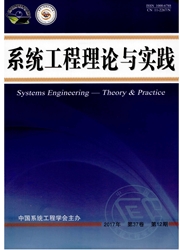

 中文摘要:
中文摘要:
一国国际收支平衡表及其构成不仅反映了这个国家目前所处的国际收支发展阶段,还反映出一国的资源禀赋、竞争力所在以及对外经济开放程度等.国际收支结构、阶段演变以及影响因素等问题研究有重要的现实意义和学术价值.本文首先基于传统“国际收支阶段假说”,对国际收支阶段影响因素进行了机理分析;其次,根据国际收支发展阶段,对全球50个国家1998—2014年的国际收支数据进行阶段的实际划分;最后,在上述研究基础上引入有序logistic回归模型对国际收支阶段演变的影响因素进行实证分析.实证结果表明:第一,人均GDP对国际收支阶段演变具有显著的正向作用,这符合Crowther的国际收支阶段假说;第二,金融深化程度(M2/GDP)对国际收支阶段演变具有显著的正向作用,实际有效汇率指数对国际收支阶段演变具有显著的负向作用,这两个变量的显著性在已有文献中并未出现,是本文重要的创新和贡献点.
 英文摘要:
英文摘要:
A country's balance of payments and its structure not only reflect the development stage of balance of payments of the country, but also reflect a country's resources endowment, competitiveness and external economic openness. The research about balance of payments structure, stage evolution and its influential factors has important practical significance and academic value. Firstly, based on the traditional balance of payments stages hypothesis (BPSH), this paper analyzes the influencing factor about balance of payments stage evolution; Secondly, based on the balance of payments stages hypothesis, this paper does empirical stages classification using the data from 50 countries over 1998 2014; Lastly, based on the above, this paper does the empirical research with the method of orderly logistic regression model. The empirical results imply that the GDP per capita has a significant positive effect on the stages evolution, which is correspond with the balance of payments stages hypothesis; real effective exchange rate index has a significant negative effect on stages evolution, M2/GDP has a significant positive effect on the stages evolution, and the significance of the two variables do not appear in the existing literatures, which is an important innovation and contribution in this paper.
 同期刊论文项目
同期刊论文项目
 同项目期刊论文
同项目期刊论文
 期刊信息
期刊信息
